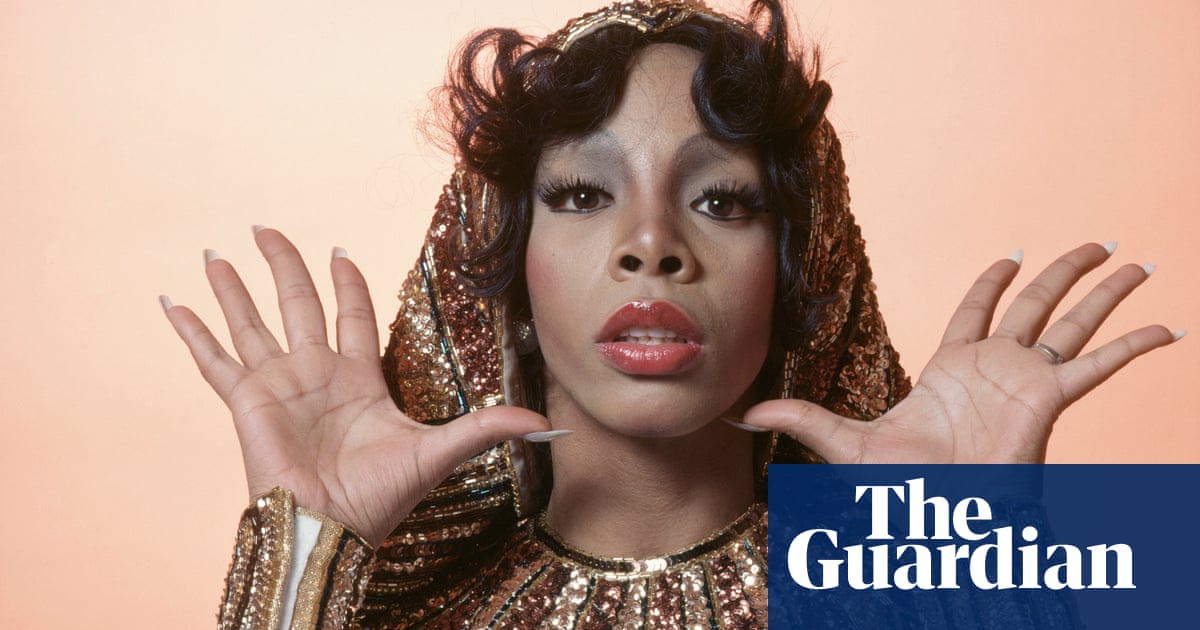
cience wasn’t Sam Riley’s thing at school. Instead, he stared out of the window dreaming of becoming an actor or a rock star. But for his latest role – as Pierre Curie alongside Rosamund Pike’s Marie in the biopic Radioactive – Riley read some textbooks. And during the shoot, a professor taught them how to use the Curies’ 19th-century lab equipment so they looked authentic.
So could he make a bomb? “Probably, if I looked online,” he says.
Really? Yikes. The film, without apportioning blame, makes the connection between Marie’s work in discovering radioactivity, and the atomic bombing of Hiroshima half a century later. Riley, it turns out, thinks I’m saying “bong”, of which, he confirms, he has already made several. He’s refreshingly unguarded, droll, funny, has very high cheekbones. And he does sound as if he has lived a bit.
The voice! It’s extraordinary. Here, in a London hotel just before lockdown, he’s a young-looking 40-year-old in black polo neck and jeans. Then Riley opens his mouth, and he’s a gravelly old geezer. It’s as if his vocal cords have been loosened and allowed to rust prematurely. “I was in a pub rock band,” he gasps. “I always had the smallest amp so I sort of destroyed my voice to make myself heard. And, y’know, the other stuff …”
Setting out, Riley looked more likely to be a rocker than an actor. He did the National Youth Theatre, but failed to get into drama school. His band, 10,000 Things, supported Babyshambles, and Riley once got mistaken for Pete Doherty in Dundee. They were signed but their album was panned in the NME and “the music sort of went tits up”.
Then his acting agent told him about a movie production that was “looking for an unknown actor to play a singer in a band”.
The film was Anton Corbijn’s Control, about Ian Curtis of Joy Division, which was released in 2007. Riley didn’t play Curtis: he tore open Curtis’s tortured soul and occupied it. It was a spellbinding performance that won him a ton of awards. Was it also a curse for his debut role to be so career-defining?
“I don’t see it like that. It launched me so far up the food chain and I got every job since largely thanks to that one. If people recognise me in the street it’s usually for that, and I am incredibly grateful. It changed my life in that it gave me a career as a leading actor, I met my wife, I went to Berlin. It was the moment when my life turned good.”
Riley’s wife is Romanian-German actor Alexandra Maria Lara, who played the journalist with whom Curtis had an affair. Their six-year-old son is, he reports, defiantly German. “When I told him to put a scarf on, he said: ‘Maybe it’s cold for the English.’”
The Berlin move also changed his career. He wasn’t in LA or even London.
“I didn’t then play Spider-Man, and go into the stratosphere, where I’m screamed at at comic cons. Assuming that is what I would have wanted to happen.”
Did he? “I spent so many hours at school daydreaming about being a movie star and the closer I got to any sort of fame the more frightened I was of it,” he says. “It’s always a mix; if I watch Graham Norton and see how they scream at certain contemporaries of mine, part of me goes: ‘Ooh that would be nice,’ and the other part of me thinks I’m happy I can wander around freely and still get work.”
He thinks some of his films – Brighton Rock and On the Road perhaps – might have been more successful at another time. “But as far as I’m concerned I’ve had a fabulous career. I’ve worked for 14 years with some amazing people.”
These include Angelina Jolie, his slightly incongruous co-star in the Disney Maleficent films. “The first time I was so terrified – not terrified of her, but of the whole thing. People kept disappearing off the set, I was thinking: I wonder if I’m going to make it through this film.”
What does he mean? “They were making it up as they went along. I probably shouldn’t say that, but amazingly what they do with enormous budget films [is that] they can afford to sort of change things as it’s happening.”
And what’s Jolie like? “I wonder if you ever really know. She was always super nice with me, we got on really well … but we don’t hang out,” he says, laughing. “It was really incredibly impressive to watch a woman or person have that much confidence and power in a system like that, in a Disney system.”
We speak again, over the phone, three months later. Riley has been at home, watching films, writing music, trying to keep his son occupied. “It’s been bizarre. We’ve realised, my wife and I, that we won’t have a time like this again with our family, so close to one another.”
He’s has been amazed by how differently Germany and the UK have been affected by coronavirus. Of the lower infection rates and fatalities in the former, he says: “If you park incorrectly here in Berlin you’ll have people coming out of shops telling you. In the time of a pandemic that is quite useful. The Germans are so civic-minded.”
Soon, their cinemas will reopen. There will be screens between seats, almost certainly no popcorn, but at least Radioactive will get a theatrical release. Riley was talking to his agent about it the other day. “He’s only got one client on his books with a film in cinemas. We never imagined I would be that client!”
• Radioactive is out now on digital platforms and on DVD on 27 July in the UK












